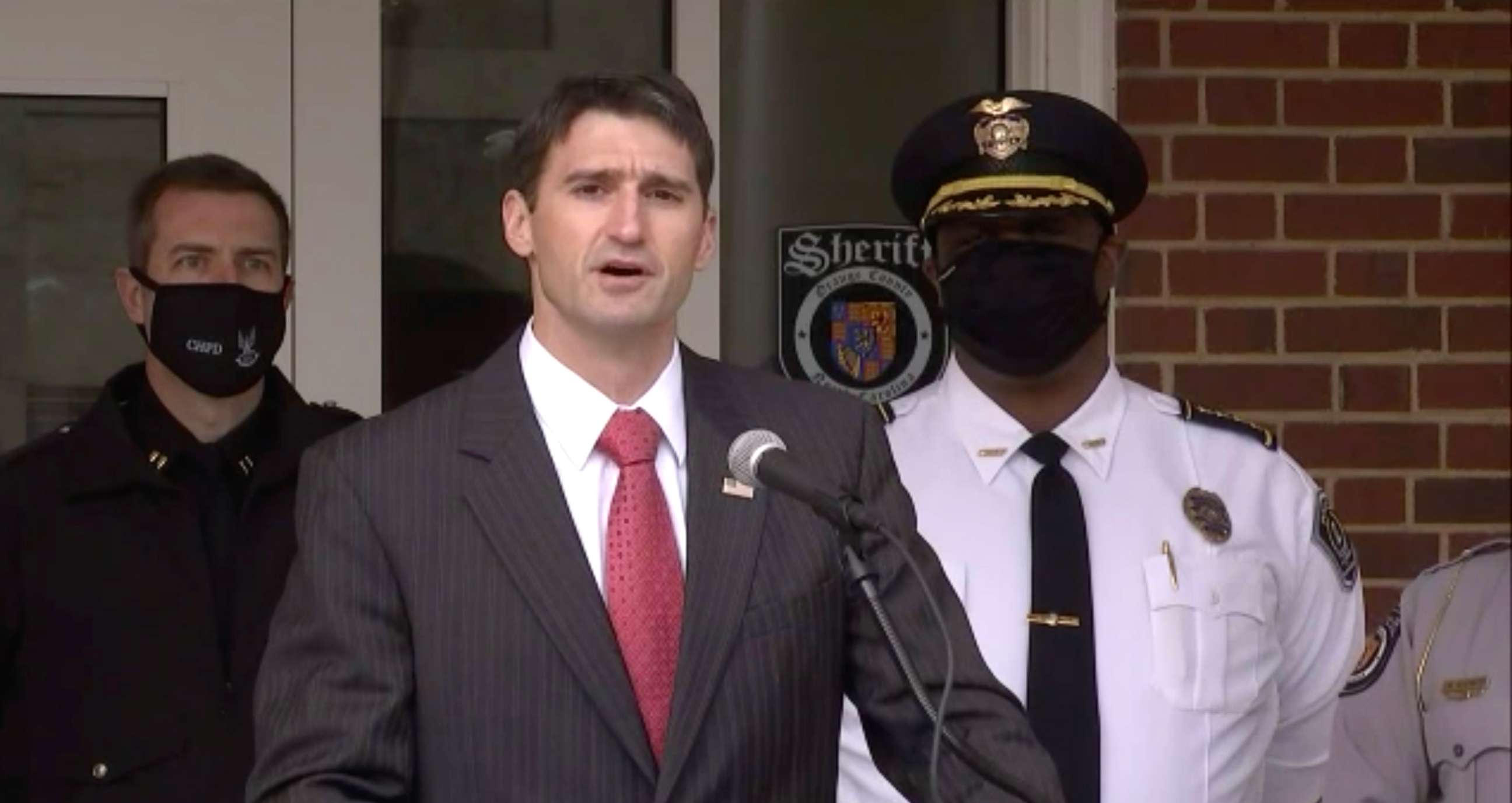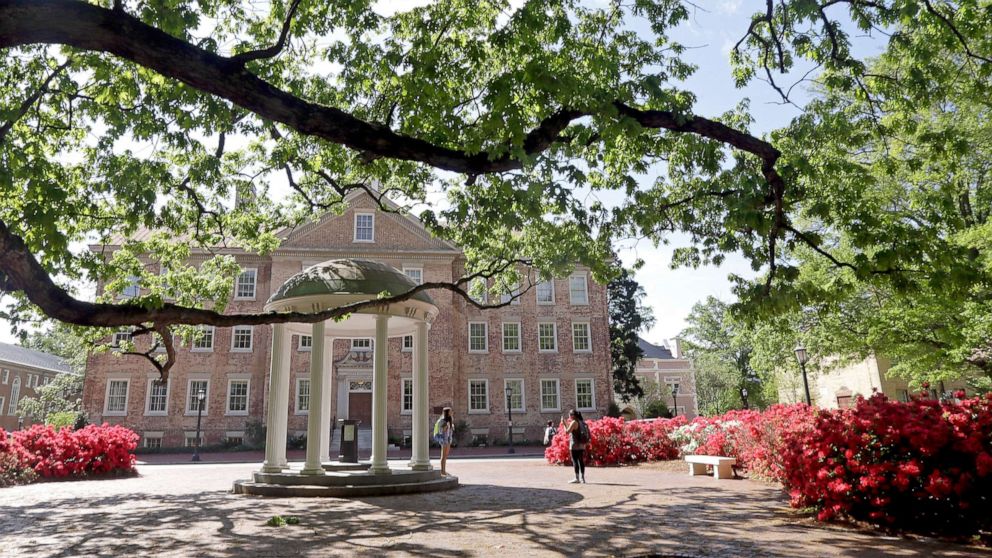3 fraternities suspended after 21 arrests tied to alleged drug ring in North Carolina
The operation's proceeds were in excess of $1.5 million, authorities said.
Three fraternities have been suspended amid a federal investigation of a "brazen" drug ring that allegedly involved current and former students of several North Carolina universities, officials said.
Twenty-one people were arrested as part of the investigation, authorities announced Thursday. The suspects, who allegedly moved thousands of pounds of marijuana, hundreds of kilograms of cocaine and other narcotics, include current and former students at the University of North Carolina, Duke University and Appalachian State University, according to Matthew Martin, U.S. Attorney for the Middle District of North Carolina.
"This is a large drug network and supply chain fueling a drug culture at fraternities and within these universities and around these universities and towns," Martin said during a press briefing. "These are 21 hardened drug dealers."

The federal investigation started two years ago, when the Drug Enforcement Agency uncovered alleged illegal drug distribution occurring at or near some UNC fraternity properties, authorities said.
"Court filings to date specifically allege illegal drug activity involving the UNC chapters of Phi Gamma Delta, Kappa Sigma and Beta Theta Pi occurring between 2017 and the spring of 2020," according to the U.S. Attorney's Office in Greensboro.
On Friday, UNC-Chapel Hill said it had suspended university recognition of the campus chapters of Phi Gamma Delta, Kappa Sigma and Beta Theta Pi "due to the alleged activity cited in the ongoing investigation."
"We are taking swift action today because the serious nature of the alleged criminal behaviors is contradictory to our code of conduct and endangers the health of our student body and community," UNC-Chapel Hill Chancellor Kevin M. Guskiewicz said in a statement. "We remain vigilant and are continuing to work with law enforcement to understand the extent of this activity on our campus and will take all appropriate measures to address it.”
The drug ring employed "very sophisticated methods," Martin said, including encrypted apps and electronic payment methods. The proceeds were in excess of $1.5 million.
Orange County Sheriff Charles Blackwood called the operation "brazen."
"The amount of illegal narcotics being sold and used in this case was not only astonishing, it is also reflective of a very serious public health crisis," he said.
Twenty defendants were charged between July and December, authorities said, with many charges carrying a mandatory minimum of five years. Seven defendants pleaded guilty to one or more charges against them and are scheduled to be sentenced next year, authorities said. The first person charged in the investigation -- identified by the Department of Justice as a primary supplier -- also pleaded guilty and was sentenced last month to 73 months, authorities said.
Authorities said they hope the ongoing investigation sends a message to universities and national fraternities.
"University administrators at Chapel Hill, Duke and App State can't turn a blind eye any longer," Martin said. "We cannot let this culture continue."

Guskiewicz said he was "extremely disappointed" to learn of the allegations on its campus.
"Although none of the individuals named today are currently enrolled students, we will remain vigilant and continue to work with our law enforcement partners to identify and address any illegal drug use on our campus," he said in a statement on Thursday. "Our community can be certain that the University will enforce the student conduct code to the fullest extent possible."
Appalachian State University and Duke University also said they're fully cooperating with the investigation.
"We are committed to providing a safe campus, and will continue our work with education and prevention, as well as utilizing student conduct and law enforcement processes, to do so," Appalachian State University said in a statement.
Duke University spokesperson Michael Schoenfeld said the institution takes the allegations "very seriously."
"The use and distribution of narcotics is against the law, it is against our code of conduct, and it endangers the health and safety of our students and community," he said in a statement. "Duke will respond accordingly through our disciplinary process."
The announcement comes on the heels of a drug ring bust at the University of Texas at Austin earlier this month, in which 13 people, including current and former students, were arrested for allegedly selling and distributing drugs.
During the federal investigation, two suspects died from drug overdoses, authorities said.




